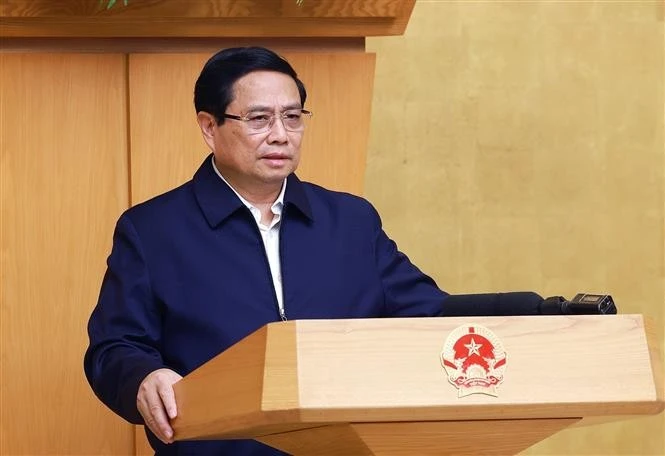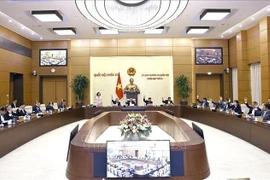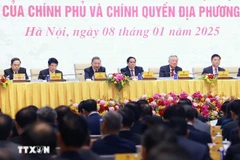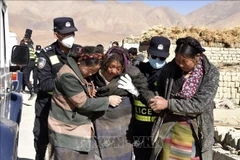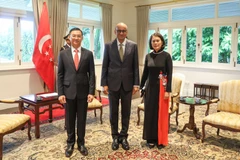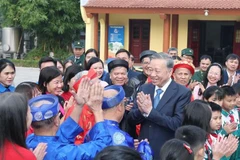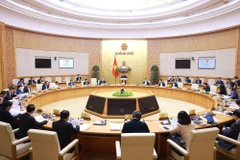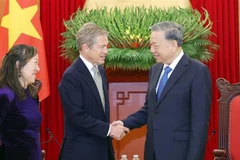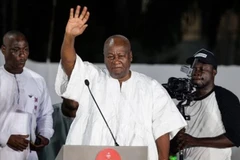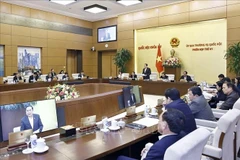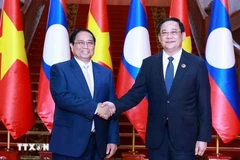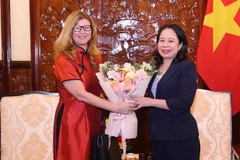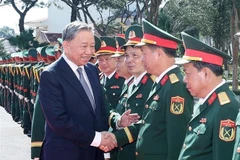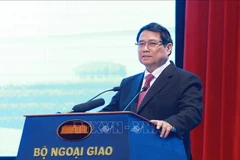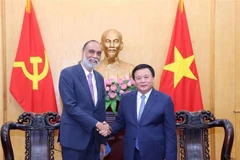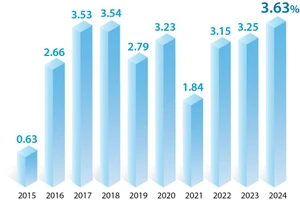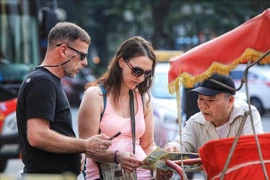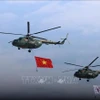Hanoi (VNA) – Prime Minister Pham Minh Chinh chaired the Government’s law-building session in Hanoi on January 7, which discussed seven draft laws and resolutions from the National Assembly (NA), many of which are related to the improvement of the legal system to make it coherent to the restructuring of political system’s organisational apparatus.
The documents include the Draft Law on Government Organisation (amended); the Draft Law on Local Government Organisation (amended); a NA Resolution on establishing several ministries in the 15th-tenure Government; a NA Resolution on the number and structure of Government members for the 16th tenure; a NA Resolution addressing issues arising from regulations on organisational restructuring; the draft Law on Promulgation of Legal Documents (amended); and the draft Law on Participation in UN Peacekeeping Forces.
Opening the session, PM Chinh highlighted the importance of institution building and perfection as one of the three strategic breakthroughs to smooth resources for development.
He underlined that the seven laws and resolutions discussed at the session are important, aiming to timely institutionalise the Party's policies on restructuring Government activities and local administration, ensuring that they are streamlined, strong and efficient.
As the draft laws must be submitted to the NA in early February, law-building efforts must be sped up with strengthened decentralisation and delegation of power, the Government leader stressed.
He emphasised the law-making process must be simple, fast, timely, practical, and efficient, without delays, complexity, or missed opportunities. Laws should be clear, easy to understand, apply, and monitor, he said.
The PM also underscored the need to ensure a full, stable, and long-term legal framework for deploying peacekeeping forces under the United Nations, while reinforcing political consensus and societal support for Vietnam’s high responsibility in the international community, aiming for peace, cooperation, and development. This institutionalises the Party's line that Vietnam is a responsible member of the international community for the cause of global peace, he stated.
He hailed the efforts of the Ministry of Home Affairs in supporting the streamlining of the political system’s organisational apparatus, and directed ministers and heads of sectors to support the ministry in the work.
The PM noted that so far, the Government is satisfied with the results achieved, particularly with the design of three decrees. However, he pointed out that some ministries and sectors still need further streamlining to meet set objectives./.
